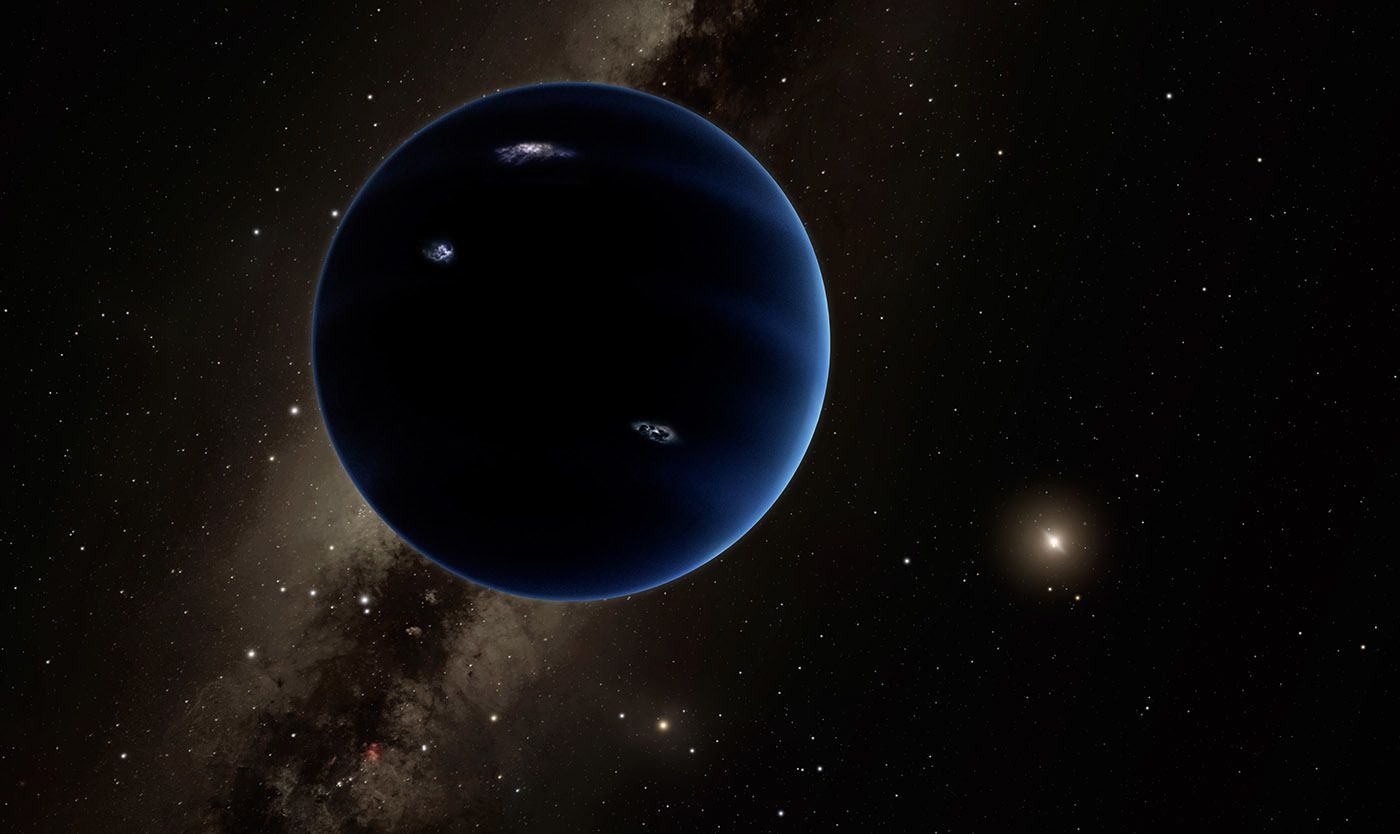
In early 2016, scientists from the California Institute of Technology published a paper suggesting that a mysterious planet larger than the Earth could be hiding beyond the orbit of Pluto, in the farthest reaches of the Solar System.
This hypothetical world has come to be known as "Planet Nine." However, some scientists aren't happy with the term, according to an open letter published in the July 29 issue of the Planetary Exploration Newsletter.
The 35 signatories argue that the nickname is disrespectful to American astronomer Clyde Tombaugh, who discovered the original ninth planet, Pluto. In 2006, the International Astronomical Union downgraded Pluto to a dwarf planet, sparking a highly controversial debate that has yet to truly subside.
"We the undersigned wish to remind our colleagues that the IAU planet definition adopted in 2006 has been controversial and is far from universally accepted," the authors wrote in the letter.
"Given this and given the incredible accomplishment of the discovery of Pluto, the harbinger of the solar system's third zone—the Kuiper Belt—by planetary astronomer Clyde Tombaugh in 1930, we the undersigned believe the use of the term 'Planet 9' for objects beyond Pluto is insensitive to professor Tombaugh's legacy."
The scientists go on to argue that the term should be discontinued in favor of "culturally and taxonomically neutral terms for such planets," like Planet X, Planet Next, or Giant Planet Five.
Pluto's status began to be questioned in the early 1990s following the discovery of several similarly sized objects in the Kuiper belt—a ring of bodies that orbit the Sun, extending from the path of Neptune at 30 astronomical units (AU) to a distance of 50 AU from the star.
The discovery of Eris, a dwarf planet that is 27 percent more massive than Pluto, prompted the IAU to formally define the term "planet" in 2006, stating that an object had to meet three conditions to be defined as such.
This definition stated that the object must orbit around the Sun, be massive enough to be rounded by its own gravity and have cleared the neighborhood around its orbit. Pluto fails to meet the last condition, leading to its declassification.
While some supported the decision, there was strong resistance amongst the astronomical community, with many scientists pointing out flaws the definition. For example, Earth, Mars, Jupiter and Neptune could all be declassified under the definition because they all share their orbits with asteroids.
"This is obviously not the most important issue in planetary science today," American astrobiologist David Grinspoon, one of the signatories on the letter, told Newsweek. "But there is an obnoxiousness to the use of 'Planet 9'. The IAU re-definition of "planet" is obviously flawed and has not been widely accepted among planetary scientists."
Despite this, Grinspoon thinks it would not be that hard to fix in a way that satisfies almost everyone.
"They really didn't need to add the nonsensical and vindictive 'A dwarf planet is not a planet' to their otherwise almost serviceable definition of dwarf planet."
There is also an additonal human factor to consider as well, he concluded.
"Clyde Tombaugh was a wonderful person with an incredible life story who against all odds—as a poor farm kid obsessed with astronomy—seized upon an opportunity, applied himself intensely, and discovered a freaking planet! He went on to collaborate with and influence a whole generation of planetary scientists, He was proud of Pluto and attached to it," Grinspoon said. "Those of us who knew him knew that the notion of a 'demotion'—not exactly a neutral term for a reclassification—was very painful to him."
The hypothetical planet in question has not been directly observed. Instead, scientists have predicted its existence based on the strange, unexplained orbits of a handful of distant, icy worlds located beyond the orbit of Neptune, known as Trans-Neptunian objects.
This group of TNOs are clustered together in a way that is extremely unlikely to have occurred by chance, indicating the presence of a planet-sized object influencing their orbits through its gravitational pull, so the theory goes. Since they were proposed, scientists around the world have scrambled to investigate the predictions, but the planet has remained elusive.
This article has been updated to include additional comment from David Grinspoon.
Uncommon Knowledge
Newsweek is committed to challenging conventional wisdom and finding connections in the search for common ground.
Newsweek is committed to challenging conventional wisdom and finding connections in the search for common ground.
About the writer
Aristos is a Newsweek science reporter with the London, U.K., bureau. He reports on science and health topics, including; animal, ... Read more
To read how Newsweek uses AI as a newsroom tool, Click here.








